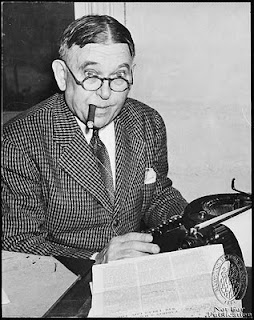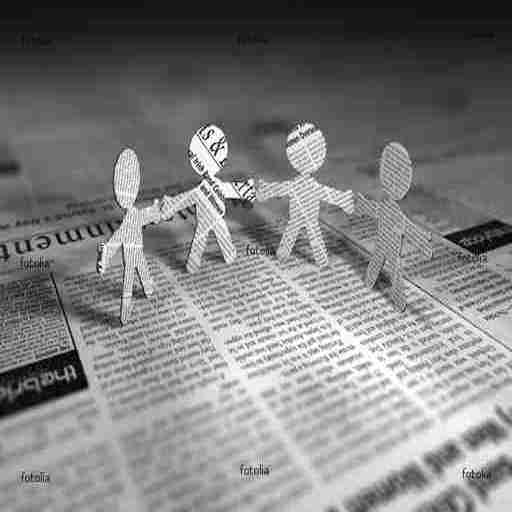The View from Afar
Writings by retired newspaper publisher Stephen Waters

The fabric of society: 13. Individuals find their place in society
fas13of14 Rome (NY) Sentinel 2015-10-15 October 15, 2015
In today’s schooling, your place in society is less an individual than a participant. To do that, authorities have filtered out of education the best of what has been said and thought. Seldom do students learn to work the complexity of life.
Montaigne despairs of making sense of himself and speaks to the internal complexity with which every individual must cope, “All contradictions may be found in me—bashful, insolent; chaste, lascivious; talkative, taciturn; tough, delicate; clever, stupid; surly, affable; lying, truthful; learned, ignorant; liberal, miserly and prodigal: all this I see in myself to some extent according to how I turn — I have nothing to say about myself absolutely, simply and solidly, without confusion and without mixture, or in one word.”
Many ought not trust what they think. Too many people with degrees have not the skill set, attention span, or interest to recognize everyday flaws in themselves, journalism, or society. People like to think they are rational, but fresh evidence arrives every day to question that. Besides, people are not so much rational as learn to use rationality to check their work.
We clutter the curriculum when the central subject worth teaching is how to live.
Discover that you matter. You matter and you need to discover how much you matter. Then you need to learn to defend yourself. Once you discover that you matter, you can shoulder the responsibility to make sure you are up to the task. The resolve not to be taken in by ignorant, selfish game-players depends on you developing process, pattern recognition, defensive rhetorical skills, experience, and a will to work at it.
The tools are simple, yours to discover, and yours to own:
You plan decisions using a map of reality, not reality itself. That’s humbling, because you understand limitations leave the possibility of being wrong. You value reciprocity because you recognize others in a similar situation live their lives as acutely as you live yours. You have a sense of time and your place in it. You value critical judgment. You value constructive habits. You separate your ‘self’ from your ideas. You disdain facades as unfair to others as others’ facades would be unfair to you. You value what is possible. You value perspective that gives you balance, consistency, and simplicity. You value tools like recursion and continuous re-evaluation but recognize their limitations.
Where do you learn to struggle? The myth of Sisyphus tells how the gods condemned him for all eternity to roll a boulder up a mountainside only to have it tumble down again just before it reached the top. The myth is a metaphor — a fiction that tells a truth. In his interpretation of Sisyphus in Once and Future Myths, Phil Cousineau reminds us of something every generation has to learn for itself: It is not what happens to us that matters; what matters is our attitude towards what happens. [1] The story doesn’t ennoble suffering, it ennobles struggle.
Struggle is inevitable, and those who learn to see it as an obstacle rather than a burden make life a lot easier for themselves. Cousineau concludes, ‘the secret of the creative life consists in taking the next step, doing the next thing you have to do, but doing it with all your heart and soul and finding some joy in doing it.’ If you forget all the facts and formulas you learn in school, you will nevertheless have grown to be an educated person if you shun the self-absorbed, downward spiral of suffering and develop in yourself, instead, the will to apply yourself each time you approach the mountain.
Minds are not always changed constructively. Sorting out unsound ideas becomes every individual’s responsibility. Unfortunately, citizens schooled today often are only partially prepared to weigh what others feed them and what they think.
[The final article examines how to prepare for the future.]
--[1] Cousineau, Phil. Once and Future Myths: The Power of Ancient Stories in Our Lives. Berkeley, CA: Conari Press, 2001. Print.

Stephen B. Waters
In early 2021, with 46 years in the business, I retired as publisher of the Rome (NY) Daily Sentinel
After five generations of family ownership, despite an unsettled economy, we keep on. We understand that although we may own the newspaper, we hold it in stewardship for the community.
Across my career, so many other small newspapers were purchased by media chains, large newspapers sold their integrity, and broadcast news outfits fell back on superficial entertainment.
They put journalism in this country at risk. The best antidote is for individual readers to arm themselves to recognize the danger to their community, culture, and society itself.
Index
-
 sbwTweet
sbwTweet
Mostly Links and Retweets -
 Essays
Essays
Writings across time -
 Editorials and columns
Editorials and columns
For the newspaper -
 Presentations
Presentations
Community discourse -
 Books
Books
Published and available -
 Audiobooks
Audiobooks
Readings and more